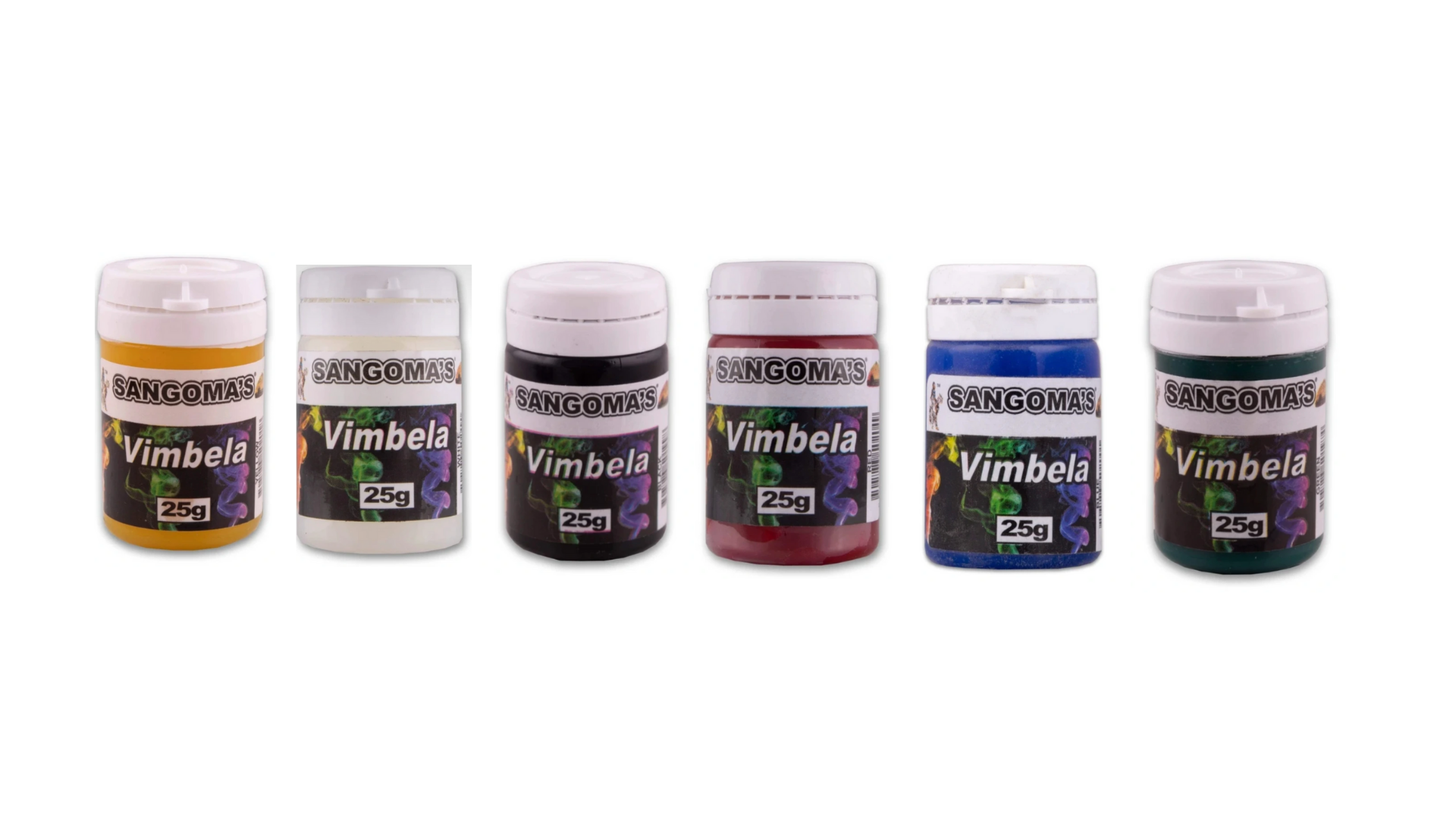Family: Hypoxidaceae
Scientific name: Hypoxis hemerocallidea
Authority: Fisch., C.A.Mey. & Avé-Lall.
Common names: uvimba (Zulu), dried African potato (English), Afrika-patat (Afrikaans)
Trade name: Vimbela
What is it?
Vimbela is a manufactured traditional ointment resembling petroleum jelly that is intended for external use. It is either a clear or brightly coloured substance that is prepared from the leaves of a plant called Hypoxis rooperii.
Plant description
H. rooperii also known as Hypoxis hemerocallidea, is a short herb that is native to Southern Africa and grows to about half a meter tall. It has strap like long leaves and star-shaped bright yellow flowers.
Plant medicinal properties
The herb reportedly has analgesic, antioxidants, antidiabetic, antimicrobial, anticonvulsant, and anti-inflammatory activities.
Plant uses
The herb is used to treat a wide range of conditions such as skin and respiratory infections, wounds, stomach disorders, inflammations, diabetes mellitus, arthritis, haemorrhage, and prostate problems. It is used as an immune booster and a tonic for HIV patients. It is used for sorcery and to ward off evil spirits.
Plant preparations
The bulb of H. rooperii along with the bulb of ikhambi lezingane (Ledebouria revoluta) are used to treat ringworm.
The bulb of H. rooperii is mixed with those of inguduza (Merwilla plumbea), umgadankawu (Albizia adianthifolia), (Searsia species), and intolwane (Elephantorrhiza elephantina). The mixture is used for blood regeneration after one has lost blood or is in need of blood.
How is it made?
The traditional mixture of Vimbela is made from different herbs, with the main herb being H. rooperii. The different herbs are ground to fine powder and made into a paste using crocodile skin oil. The mixture is processed until it resembles petroleum jelly.
How it works?
Vimbela is luminous at night. Meaning it glows in the dark with a blue flame that can be seen around the ointment. It is believed that this flame is how the product wards off evil. The flame burns attackers such as evil spirits. When smeared on the body, it is said that any attack on the body is burnt by the flame.
How is it used?
Vimbela is used to treat inflammations, arthritis, wounds, sorcery, and ward off evil spirits.
- Vimbela is used to protect pregnancy and prevent miscarriage
- Pregnant women smear Vimbela underneath the feet to ward off evil spirits that may cause miscarriage, such as umeqo, bad medicine left by ill-intentioned people to cause harm
- Pregnant women mix Vimbela with Vaseline and apply the mixture on the body
- Mothers mix Vimbela with ostrich eggshell powder to protect infants and children from evil spirits and witchcraft that can them sick
- Mothers mix Vimbela with baby lotion apply it on the baby’s body to protect against witches and evil medicine that people carry and use to make a baby very sick.
- Vimbela is applied on the ukhakhayi area of head
- Vimbela is applied on babies and children to protect them from witchcraft, evil spirits, and bad spells
- It is used to protect babies against bad dreams
Besides warding off evil, the ointment is also used to moisturize the skin, relieve body ache, insomnia, and sleep problems.
Misappropriation of indigenous knowledge
African potato is one of many examples where indigenous rights were not protected. Uvimba (African potato) was used by South Africans long before it was “discovered” by R.W Liebenberg, a South African businessman. R.W Liebenberg “discovered” the benefits of the plant that was already being used by black people and patent the indigenous intellectual property for his own benefit.
You can learn about the different Vimbela colors and their meanings, by accessing the article on Vimbela colors and their meaning.
Safety precaution
The use of traditional medicine in prescribed dosages will yield good results. Misuse and abuse may lead to complications. To learn about correct dosage, consult a traditional healer or a herbalist. You can also visit imithiyesintu.co.za or email: info@imithiyesintu.co.za to learn more about traditional medicine.
